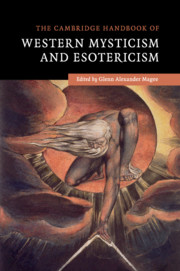Book contents
- Frontmatter
- Dedication
- Contents
- Acknowledgments
- Editor's Introduction
- List of contributors
- I ANTIQUITY
- II THE MIDDLE AGES
- III THE RENAISSANCE AND EARLY MODERNITY
- IV THE NINETEENTH CENTURY AND BEYOND
- V COMMON THREADS
- 30 Alchemy
- 31 Astrology
- 32 Gnosis
- 33 Magic
- 34 Mathematical Esotericism
- 35 Panpsychism
- 36 Sexuality
- Suggestions for Further Reading
- Index
- References
35 - Panpsychism
from V - COMMON THREADS
Published online by Cambridge University Press: 05 May 2016
- Frontmatter
- Dedication
- Contents
- Acknowledgments
- Editor's Introduction
- List of contributors
- I ANTIQUITY
- II THE MIDDLE AGES
- III THE RENAISSANCE AND EARLY MODERNITY
- IV THE NINETEENTH CENTURY AND BEYOND
- V COMMON THREADS
- 30 Alchemy
- 31 Astrology
- 32 Gnosis
- 33 Magic
- 34 Mathematical Esotericism
- 35 Panpsychism
- 36 Sexuality
- Suggestions for Further Reading
- Index
- References
Summary
Introduction
The term “panpyschism” is a combination of the Greek pan, “all or every,” and psuchê (or psyche), “breath or soul,” implying life-force, mental activity, and an animating spirit inherent in all of nature. The historical morphology of the term is complex and it was not until the Renaissance period that the term panpsychism was first used by Francesco Patrizi in 1591 in an esoteric, philosophical work. Much of what might be interpreted as panpsychism is also interwoven with other late philosophical constructs, such as “pantheism,” which was first articulated by John Toland in 1705 as “God or Deity throughout everything”; a bit later, “panentheism” defined by Karl Krause in 1829 as a theological doctrine that “all is in God.”
The construction of panpsychism within the history of Western esotericism is a complex of related ideas forming a rich morphological history from which ideas of pantheism and panentheism are not easily separated. Further, the early history of panpsychism is implicit in comparison to much later writings in which the concept becomes explicit (and where psyche is usually interpreted as “mind”), although even in contemporary esotericism, panpsychism tends to cover a range that mediates between implicit theories and explicit definitions. In this essay, I will review some key implicit morphologies of panpsychism within the history Western esotericism and, where possible, indicate where the idea becomes more explicit.
Panpsychism in Greco-Roman Traditions
The belief that nature is ensouled can be found in early Greek philosophy as a classical source for cosmological speculation in Western esotericism. Applied to the world at large, an implicit panpsychism was constructed as an animate presence or vital soul principle within the world, imbued with mental influences, and often conceived as taking the form of gods or goddesses. Thus, for Thales the world was enpsychion or “ensouled” as a great living organism, an animal, within which lesser beings had their own lives and souls. Aristotle cites Thales as the author of the statement “all things are full of gods,” implying a panpsychism with strong pantheistic content.
In a related but distinct morphology, Cicero attributes similar panspiritual beliefs to Pythagoras, whose mathematical theory infused the whole of nature with divine number and forms, universally spiritualizing nature.
- Type
- Chapter
- Information
- The Cambridge Handbook of Western Mysticism and Esotericism , pp. 417 - 428Publisher: Cambridge University PressPrint publication year: 2016



